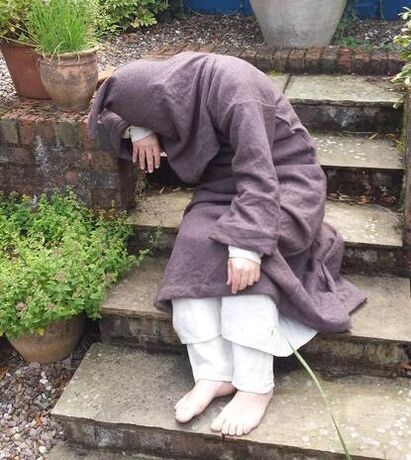19 Comments
HD
22/11/2014 12:05:17 pm
These are great article and interview! I've always been interested by Ancient Greek and Medieval English. Thank you!
Reply
Nithushan
19/2/2015 07:05:01 pm
Merlin hod you trien magces
Reply
The Anglo-Saxon Monk
4/3/2016 09:39:42 am
Alas, I have not had such a pleasure! Is this something you could arrange by any chance? I could maybe sneak out of my monastery for the day. More seriously, thank you for reading and leaving your comment.
Chris *The Anglo-Saxon Monk
22/11/2014 12:22:32 pm
Ah, thank you @HD for your kind comments. Looking forward to more Colin Morgan on Humans!
Reply
sandra
22/11/2014 03:29:14 pm
es bueno saber que todos esos raros hechizos significaban algo generalmente, muy bueno.
Reply
Chris *The Anglo-Saxon Monk
22/11/2014 05:19:49 pm
Gracias, Sandra, for your comment. Yes, it is a relief to know that all the spells aren't complete nonsense. However, listening again to the one where Merlin first commands the dragon, I have to say Merlin's Old English is a bit dodgy. I'm more use to reading the language than hearing it, myself, so I find it difficult to catch everything he says. Still, it's a great moment where his language befits his taming of the dragon.
Reply
Vivien
23/11/2014 01:20:54 am
Colin Morgan said once in an interview that the dragon tongue in Merlin is written in Old German. I've tried to figure it out but still yet done it. Anyway, thank you for the interview with Dr. Mark Faulkner. It's a precious and rare information that can give me a glimpse of Merlin's spoken language. I'm a Colin Morgan fan, too.
Chris *The Anglo-Saxon Monk
23/11/2014 04:22:22 am
Thanks, Vivien. You have intrigued me. Old English is a Germanic language. So there will be overlaps. My understanding is that Mark provided the language for the spells. I wonder if someone else provided the dragon tongue (the bits where Merlin commands yhe dragon)? I'm going to have to chase this up. Thanks again.
Reply
20/4/2022 07:55:31 am
Thanks for leaving your comment. It's curious. I never found out if other languages were used.
Ivana
3/1/2015 10:29:35 am
Thank you for this piece of information :-), wish i had it last year when i was working on my thesis - Old English Spells in BBC's Merlin - if anyone's interested, you can check it out here ;-): https://www.academia.edu/9992264/Old_English_Spells_in_BBCs_Merlin_
Reply
Chris *The Anglo-Saxon Monk
3/1/2015 01:02:45 pm
Thank you so much for the link to your Master's thesis. I've taken a quick look at it and I must say it has to be one of the coolest thesis I've seen! It also answers the question about the difference in language between Merlin's general magic spells and his commanding of the dragon.
Reply
The Anglo-Saxon Monk
12/3/2016 08:49:13 am
Thank you, Kay. May you be blessed!
Reply
12/3/2016 09:30:28 pm
Merry Meet! An interesting interview. I personally prefer the feel of the energy of spoken Old English for my Sexual Sorcery Spells Of Enchantment. I actually recorded a spell using both modern and then Old English and without a doubt Old English felt so much more powerful. We must not underestimate the magical power that a language gains with use. Blessed Be, Morgana xxx
Reply
The Anglo-Saxon Monk
13/3/2016 09:38:12 am
Now I can say genuinely that my blog is cool -- or, rather, cól! Thank you, Morgana, for your interesting observation, which I have to agree with. There is a certain earthly/earthy rhythm to Old English that generates that magic.
Reply
HORLAR
12/9/2017 09:25:02 pm
merlin must have season 6 because the great dragon told merlin that arthur will raise again
Reply
The Anglo-Saxon Monk
13/9/2017 11:12:30 am
Let's hope so.
Reply
Your comment will be posted after it is approved.
Leave a Reply. |
Details
|




